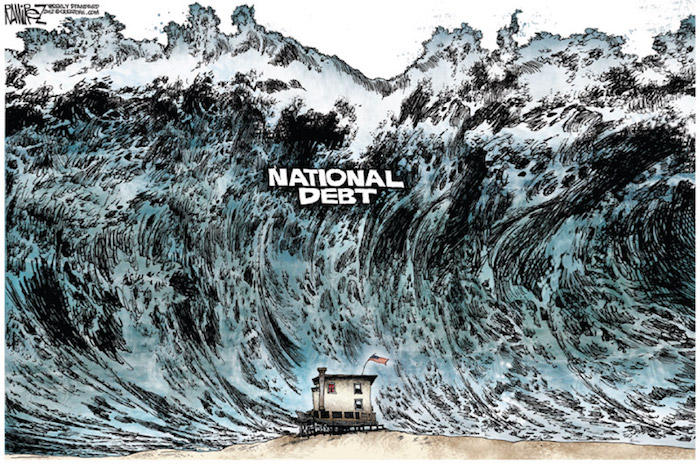|
By Jeff Deist
The problem with presidential candidates is not so much what they say and believe, but rather what they don't say and believe. Behind the laying and dissembling and obfuscation there is a palpable suspension of disbelief. Our would-be political rulers simply ignore — or fail to grasp — the gravity of our economic situation. We are preoccupied with terrible shootings, bathroom wars, and the petty intrigue of political campaigns. We debate trivialities. But the bigger story, the gradual but grinding reality behind how western governments operate, doesn’t hold our attention. This is a time of unprecedented economic hedonism, engineered and encouraged by western governments and their central banks. It is sold to us as banal public policy and technical tinkering, when in fact a radical and anti-human ideology underpins it. The arc of human progress, marked by capital accumulation and ever-increasing productivity — at least in healthy societies — has been upended. It’s a slow-motion catastrophe, whereby Americans and Europeans live today at the expense of tomorrow. Fiscal hedonism is rampant in Congress, and has been for decades. How do they get away with it? Perhaps because we allow it. US government debt, now more than $19 trillion, seems almost amorphous to voters. It’s been with us so long, and nothing too terrible has happened. … Yet while Ross Perot made the “national" debt a cornerstone issue of his campaign in 1992, today it’s become almost a third rail in American politics. Donald Trump recently discovered this the hard way, after an offhand comment about US creditors taking a haircut on their Treasury bond holdings. Any talk of actually repaying or (better yet) repudiating government debt is today seen as crankish. That’s why the great James Grant took so much heat for daring to suggest that the US government is insolvent in his recent cover article for Time magazine. Monetary hedonism, meanwhile, is the order of the day for nearly all western central banks. The US Federal Reserve, in particular, has shown it will stop at nothing to enable Congress to spend beyond its means. By providing a ready market for Treasury debt (i.e., quantitative easing, buying Treasury bonds from commercial banks using newly created money), the Fed effectively monetizes federal debt in a shamefully opaque way. And by keeping interest rates artificially low, thus reducing federal interest payments, the Fed helps Congress make annual deficits look smaller. Consider that the Fed’s balance sheet has more than quadrupled since the Crash of 2008, to roughly $4 trillion. Will this historically unprecedented increase in the monetary base really just vanish into thin air with no ill effects? Will the malinvestment caused by cheap credit from commercial banks flush with reserves not create huge dislocations down the road? Will propping up overheated coastal real estate markets and inflating equity prices for companies with dubious earnings really create long-term economic growth? The short answer is “No,” and the rest of the world knows it. Our creditors know that Congress will never put its fiscal house in order, and that the Fed will never return to “normal” monetary policy. The West cannot continue to live on borrowed time and borrowed money forever, despite our military power. The laws of economics prevail in the long run. There are hopeful signs, however. Americans and Europeans may not be demanding libertarian approaches to our fiscal and monetary problems, but they are increasingly suspicious of centralized government power and central bank cronyism. Secession and breakaway movements like Brexit in the UK gain momentum, while disapproval of artificially engineered globalism grows. “Unbanking” alternatives grow, as distrust of currencies increases and flaws in cryptocurrencies (namely traceability) are corrected by blockchain engineers. Populism — while always a double-edged sword — threatens state-connected global elites like never before. And the rapid proliferation of social media options makes it almost impossible for the state’s media gatekeepers to control the narrative. [From the July-August issue of The Austrian.] Comments are closed.
|
Archives
July 2024
|



 RSS Feed
RSS Feed



